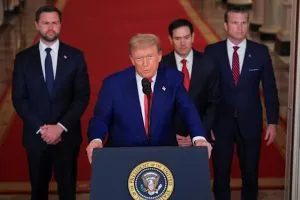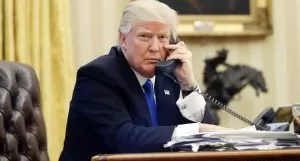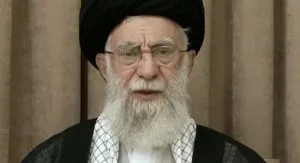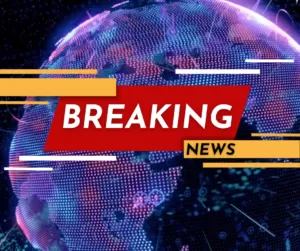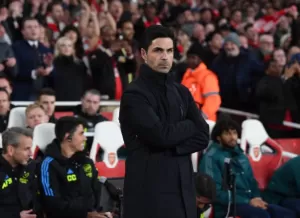Iran’s Supreme Leader Declares Victory Over Israel, Dismisses U.S. Strikes in First Comments Since Ceasefire
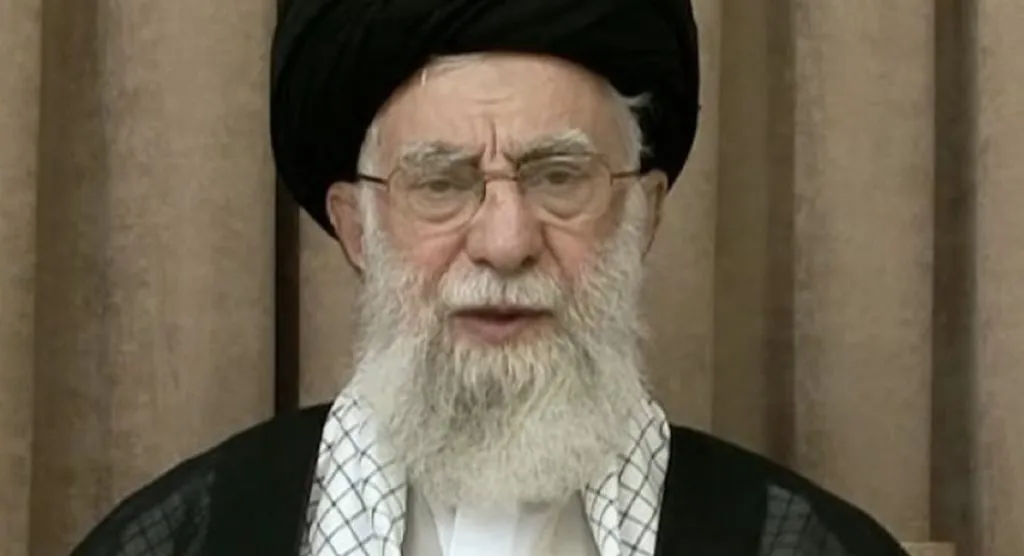
June 26, 2025 – In his first public statement since the ceasefire that halted recent hostilities in the Middle East, Iran’s Supreme Leader, Ayatollah Ali Khamenei, declared a symbolic victory over Israel and the United States, asserting that Iran’s military actions delivered a “severe slap” to its adversaries. Speaking to a gathering of military officials and state media in Tehran, Khamenei claimed that Iran’s missile strike on the Al-Udeid U.S. Air Base in Qatar demonstrated the Islamic Republic’s resilience and military reach, while dismissing U.S. and Israeli claims of strategic success as hollow propaganda.
Iran’s Narrative of Triumph
Khamenei’s remarks focused heavily on Iran’s response to what he described as unprovoked aggression by the U.S. and Israel. On June 20, 2025, U.S. and Israeli airstrikes targeted several of Iran’s nuclear facilities, including the heavily fortified Fordow site, in retaliation for Iran’s alleged violation of prior agreements limiting its nuclear program. The strikes, which both U.S. President Donald Trump and Israeli Prime Minister Benjamin Netanyahu hailed as a decisive blow, were intended to cripple Iran’s nuclear ambitions. However, Khamenei refuted these claims, asserting that while physical infrastructure may have been damaged, Iran’s nuclear expertise remains intact.
“The enemies thought they could erase our capabilities with bombs, but they cannot destroy the knowledge and will of the Iranian people,” Khamenei said. “Their strikes were a violation of international law, and they gained nothing but humiliation. Our missiles reached their targets, proving our strength and resolve.”
The Supreme Leader specifically highlighted Iran’s missile attack on the Al-Udeid Air Base, a key U.S. military hub in the region, as evidence of Iran’s ability to project power. According to Iranian state media, the strike caused minor damage to the base but served as a symbolic retaliation, signaling that Iran could target U.S. assets with precision. Khamenei warned that any further aggression from the U.S. or its allies would face “strong and decisive” retaliation, with Iran capable of striking “key centers” across the region.
U.S. and Israeli Counter-Narratives
The U.S. and Israel have painted a starkly different picture of the conflict’s outcome. President Trump, speaking from the White House on June 22, claimed that the joint U.S.-Israeli operation “obliterated” Iran’s nuclear program, setting it back “by years.” Netanyahu echoed this sentiment, calling the strikes a “historic victory” that neutralized Iran’s ability to develop nuclear weapons in the near term. Israeli officials cited satellite imagery and intelligence reports showing significant damage to centrifuge halls at Fordow and other sites, which they argued would delay Iran’s nuclear progress substantially.
However, a leaked Pentagon intelligence report, cited by sources on X and in Western media, suggests a more nuanced reality. While the strikes damaged critical infrastructure, including uranium enrichment facilities, they are estimated to have delayed Iran’s nuclear program by only six to twelve months. The report also noted that Iran’s dispersed nuclear research network and underground facilities limited the long-term impact of the strikes. This assessment aligns with Khamenei’s claim that Iran’s nuclear know-how remains unaffected, though it contradicts the more triumphant rhetoric from Washington and Jerusalem.
Ceasefire and Competing Narratives
The ceasefire, brokered on June 24 through diplomatic channels involving Qatar and the United Nations, came after intense escalation that raised fears of a broader regional conflict. Iran’s missile strikes on U.S. and Israeli targets, combined with the U.S.-Israeli airstrikes on Iran, marked some of the most direct military exchanges between the parties in decades. The ceasefire agreement, while halting active hostilities, has done little to resolve the underlying tensions, with both sides now engaging in a war of narratives to claim victory.
Khamenei’s speech appears aimed at bolstering domestic support and projecting strength to Iran’s allies in the region, including Hezbollah in Lebanon and various militia groups in Iraq and Syria. By framing the ceasefire as a triumph, Iran seeks to maintain its regional influence and deter further attacks. Meanwhile, the U.S. and Israel are leveraging their claims of success to reassure domestic audiences and allies, particularly in the Gulf states, that Iran’s nuclear threat has been curtailed, at least temporarily.
Broader Implications
Analysts warn that the ceasefire is fragile, with the potential for renewed conflict if either side perceives a violation of the agreement. Khamenei’s warning of retaliation against future U.S. actions underscores Iran’s intent to maintain a strong deterrent posture. At the same time, the U.S. and Israel have signaled their readiness to resume military operations if Iran attempts to rebuild its nuclear capabilities or escalates proxy attacks through its regional allies.
The international community remains divided on the conflict. Russia and China, both vocal supporters of Iran, have condemned the U.S.-Israeli strikes as violations of sovereignty, while European nations have called for de-escalation and a return to diplomatic talks. The United Nations Security Council has scheduled an emergency meeting to discuss the situation, though consensus on next steps remains elusive.
Conclusion
As the dust settles on the recent ceasefire, both Iran and its adversaries are claiming victory in a conflict that has left no clear winner. Ayatollah Khamenei’s defiant speech underscores Iran’s determination to project strength despite significant losses, while the U.S. and Israel emphasize the damage inflicted on Iran’s nuclear program. With competing narratives dominating the discourse, the ceasefire represents a pause rather than a resolution, leaving the Middle East on edge as all sides prepare for the next chapter in this ongoing rivalry.
